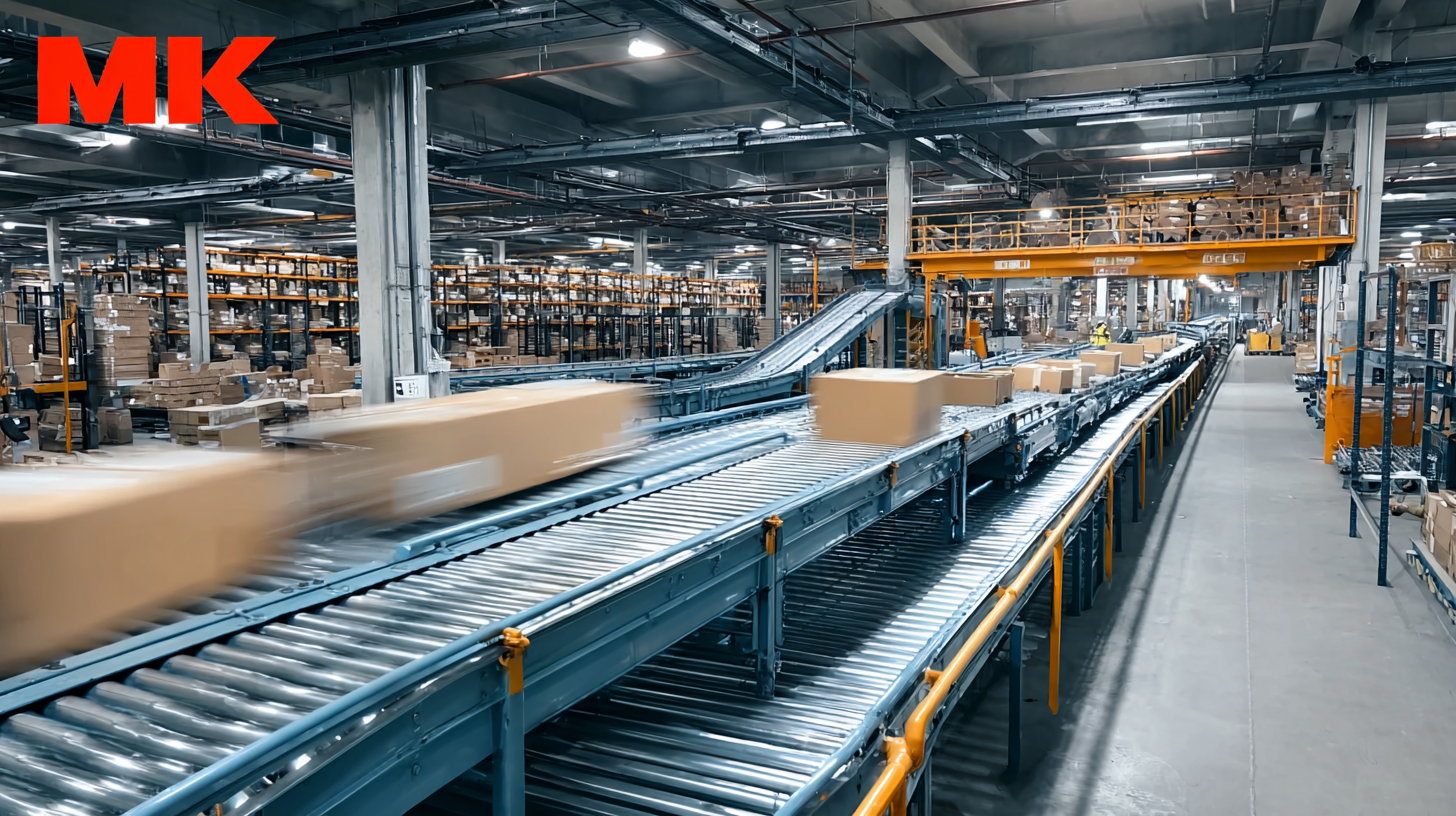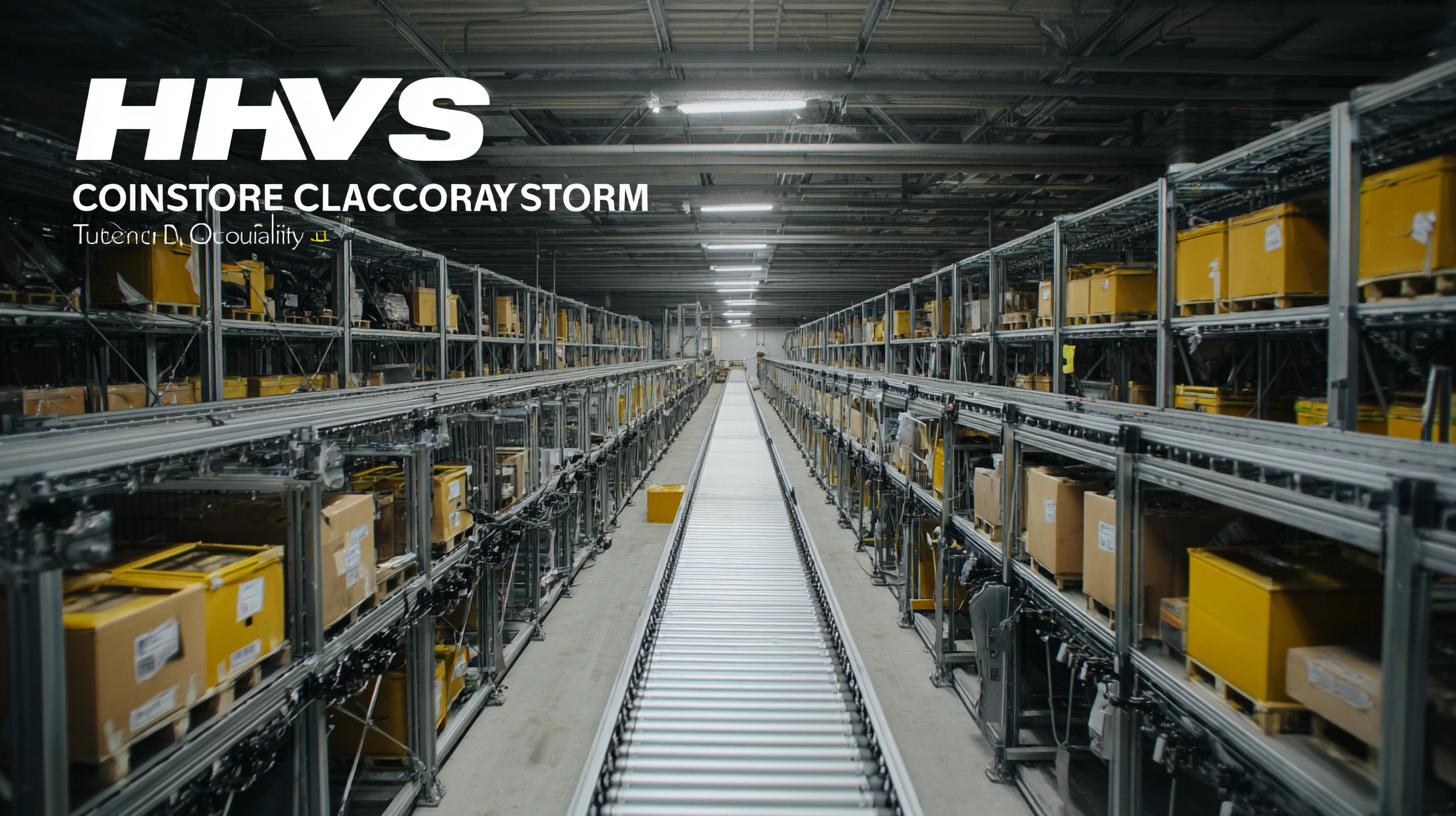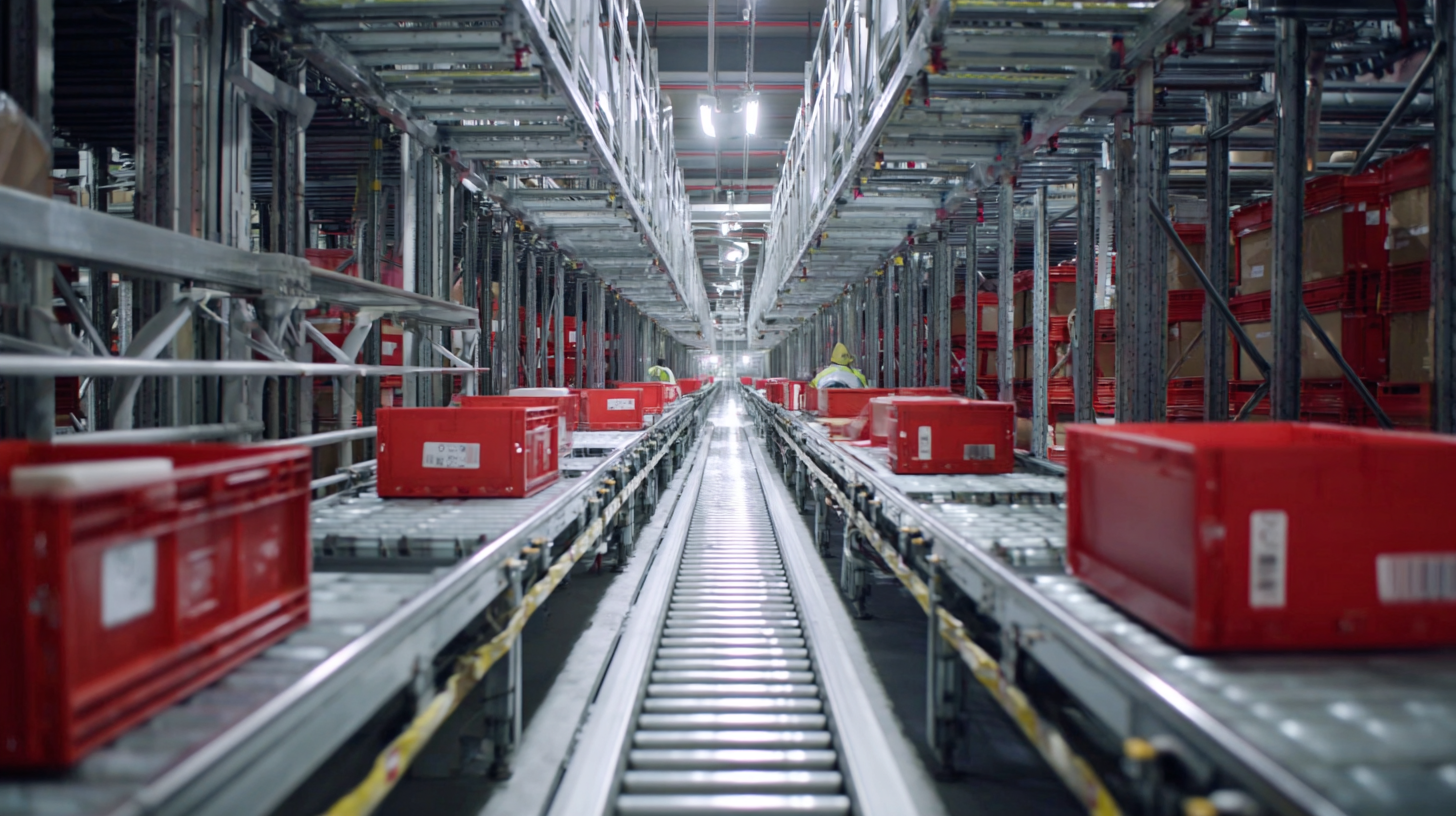As industries around the globe pivot towards automation and efficiency, the demand for high-quality storage conveyor systems has surged dramatically. According to a recent report by MarketsandMarkets, the conveyor systems market is projected to reach $8.3 billion by 2027, demonstrating a CAGR of 4.8% from 2022. This growth highlights the critical role that efficient material handling solutions, such as storage conveyor systems, play in optimizing workflow and minimizing operational costs. China's leading manufacturers are stepping up to meet this demand with unmatched quality and innovative designs, establishing a reputation for reliability that transcends borders. This blog will explore the exceptional features of these storage conveyor systems and examine how they contribute to global trust and efficiency in various industries.

In the fast-paced manufacturing landscape, the application of storage conveyor systems has become imperative for enhancing operational efficiency. According to a recent report by the Material Handling Industry of America (MHIA), approximately 70% of manufacturers are investing in automated systems, including conveyors, to streamline their processes. These systems reduce manual handling, minimize errors, and significantly lower operational costs.

For example, a leading automotive manufacturer implemented a state-of-the-art storage conveyor system that increased their throughput by 30% while decreasing labor costs by 20%. This case study highlights the effectiveness of conveyor systems in optimizing inventory management and ensuring timely delivery of components on the production line.
With the rise of Industry 4.0, integrating advanced technology such as IoT and AI within these systems is projected to further enhance their capabilities, offering real-time monitoring and predictive maintenance functionalities. This evolution positions storage conveyor systems as a cornerstone of modern manufacturing efficiency and reliability.
The integration of automation in warehouse operations is revolutionizing the efficiency of logistics and supply chain management. With the burgeoning demand for automated material handling systems, the market is projected to grow significantly. By 2031, the revenue generated from automated material handling equipment is expected to soar, with key technologies like Goods-to-Person (GTP) systems, picking systems, and collaborative mobile robots taking center stage. These innovations not only streamline operations but also optimize space utilization and reduce labor costs, making them indispensable in sectors ranging from energy to healthcare.
Conveyor systems play a pivotal role in this transformation. As they facilitate the smooth transport of goods across various stages of production and storage, their importance in enhancing operational efficiency cannot be overstated. For instance, the global conveyor system market is anticipated to rise from $6.05 billion in 2024 to $9.26 billion by 2032, at a steady CAGR of 5.5%. This growth underlines the critical need for businesses to adopt automated solutions. By investing in high-quality conveyor systems from trusted manufacturers, companies can build a framework of global trust and maintain a competitive edge in a rapidly evolving market.
In today's fast-paced e-commerce environment, the efficiency of warehouse operations can significantly impact a company's bottom line. The latest advancements in storage conveyor systems highlight how businesses can optimize their fulfillment processes to improve return on investment (ROI). By incorporating intelligent technologies such as simulation and digital twin methodologies, companies can streamline their warehouse design for enhanced productivity. These innovations now allow firms to visualize their workflow, predict issues, and adjust systems proactively, ensuring optimal performance in real-time.
China's leading manufacturers of conveyor solutions are at the forefront of these advancements, offering unmatched quality tailored for global markets. Their systems are engineered not only for reliability but also for scalability, adapting to the specific needs of various industries. By leveraging data-driven insights and performance metrics, businesses can evaluate the effectiveness of their conveyor systems and make informed decisions to maximize operational efficiency, thus realizing a higher ROI in their logistics investments. As the industry continues to evolve, the integration of advanced conveyor technology remains a crucial factor for success in the global marketplace.

In the ever-evolving landscape of global logistics, the demand for advanced storage conveyor systems is surging. A recent report by MarketsandMarkets reveals that the conveyor systems market is projected to reach $7.5 billion by 2026, with a compound annual growth rate (CAGR) of 4.9% from 2021. This growth underscores the importance global businesses place on efficiency and reliability in their supply chains. Chinese conveyor systems have emerged as a top choice due to their superior engineering and cost-effectiveness, enabling companies to enhance productivity while maintaining budgetary constraints.
Trust is paramount in selecting a conveyor system provider, and Chinese manufacturers have built a reputation for delivering unmatched quality. According to a study by Freedonia Group, over 30% of global companies now source their conveyor systems from China, recognizing the high standards of production and innovation. Features such as high load capacity, modular designs, and energy-efficient operations have positioned these systems as essential components in warehousing and logistics. Businesses worldwide are leveraging these advancements to optimize their operations, showcasing the pivotal role that Chinese conveyor systems play in driving global commerce forward.
| Feature | Specification | Benefit |
|---|---|---|
| Material | High-Quality Steel | Durability and Longevity |
| Load Capacity | Up to 500 kg | Handles Heavy Loads Efficiently |
| Speed | Up to 30 m/min | Increases Productivity |
| Control System | Smart Automation | Enhances Workflow Management |
| Customization Options | Modular Design | Tailored to Specific Needs |
| Maintenance | Low Maintenance Requirements | Cost-Effective Operation |
| Global Certifications | ISO 9001 | Assurance of Quality Standards |
In today's competitive landscape, the effectiveness of a storage conveyor system can greatly influence operational efficiency across various industries. From automotive manufacturing to e-commerce fulfillment, data demonstrates that integrating advanced conveyor systems can lead to a 20-30% increase in production speed and a significant reduction in labor costs. For instance, a report by the Material Handling Industry of America (MHIA) indicates that companies utilizing automated conveyor systems have reported up to 50% reduced operational errors, allowing them to meet growing consumer demands without compromising quality.
One notable success story comes from a leading e-commerce warehouse, which implemented a state-of-the-art conveyor system that streamlined order processing. As a result, the facility saw a staggering 40% boost in order fulfillment rates, enabling them to handle peak seasons without additional labor costs. This aligns with findings from a recent survey by the Warehousing Education and Research Council (WERC), which noted that 68% of respondents experienced improved inventory accuracy post-implementation of conveyor systems.
Tip: To maximize the benefits of a storage conveyor system, it is crucial to conduct a thorough analysis of your warehouse layout and material flow. This ensures optimal placement and efficiency. Additionally, consider investing in ongoing maintenance—studies have shown that regular upkeep can extend the lifespan of conveyor systems by an average of 20%.
